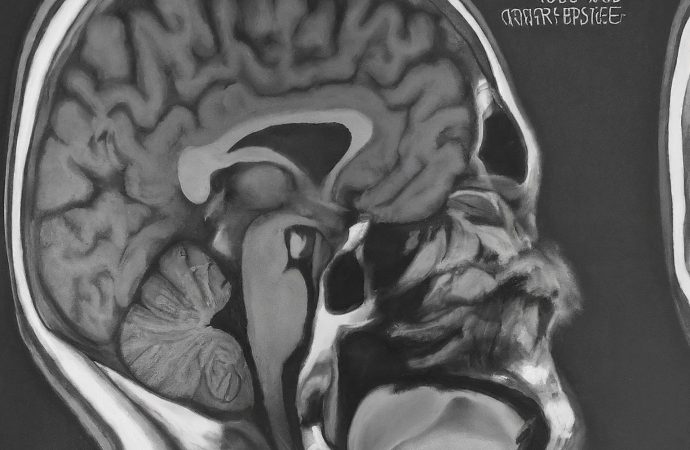Introduction Alzheimer’s disease, a progressive neurodegenerative disorder, casts a long shadow over millions of lives globally. For decades, researchers have been tirelessly working to unravel the complexities of this debilitating condition. Now, a beacon of hope shines brighter than ever as groundbreaking advancements illuminate the path towards a future free from Alzheimer’s. Dr. Evelyn Ramirez,
Introduction
Alzheimer’s disease, a progressive neurodegenerative disorder, casts a long shadow over millions of lives globally. For decades, researchers have been tirelessly working to unravel the complexities of this debilitating condition. Now, a beacon of hope shines brighter than ever as groundbreaking advancements illuminate the path towards a future free from Alzheimer’s.
Dr. Evelyn Ramirez, a distinguished neurologist and Alzheimer’s researcher at the Alzheimer’s Association, sheds light on the latest breakthroughs and their potential impact. Let’s delve into the exciting world of Alzheimer’s research and explore the promising avenues that are emerging.
Understanding Alzheimer’s Disease
Alzheimer’s disease is a complex condition characterized by the gradual deterioration of brain cells. It primarily affects memory, thinking, and behavior. While the exact causes remain elusive, researchers have identified several key factors contributing to the development of the disease, including:
- Amyloid plaques: These abnormal protein clumps disrupt cell communication.
- Tau tangles: Twisted fibers within brain cells interfere with normal function.
- Inflammation: Chronic inflammation plays a role in disease progression.
- Genetics: A family history of Alzheimer’s increases the risk.
Breakthroughs in Alzheimer’s Research
Recent years have witnessed a surge in Alzheimer’s research, yielding promising results and offering renewed hope. Let’s explore some of the most significant advancements:
1. Early Detection and Diagnosis
Early detection is crucial for effective management of Alzheimer’s. Researchers are developing innovative biomarkers and imaging techniques to identify the disease in its early stages. These advancements enable timely interventions and potential disease-modifying therapies.
2. Targeting Amyloid Plaques
A significant focus of Alzheimer’s research has been on amyloid plaques. Scientists are developing therapies aimed at reducing or eliminating these harmful clumps. While challenges persist, promising results have emerged, suggesting that targeting amyloid may be a viable approach.
3. Tau Protein and Neurodegeneration
Tau tangles, another hallmark of Alzheimer’s, have also been a target for research. Scientists are investigating strategies to prevent the formation of tau tangles and protect brain cells from damage.

Image by: https://www. tampa bay.com
4. Inflammation and Alzheimer’s
Chronic inflammation is increasingly recognized as a key player in Alzheimer’s progression. Researchers are exploring anti-inflammatory treatments as potential disease-modifying therapies.
5. Lifestyle Factors and Prevention
Lifestyle factors such as diet, exercise, and cognitive stimulation play a crucial role in brain health. Research is uncovering the impact of these factors on Alzheimer’s risk and exploring preventive strategies.
The Road Ahead: Challenges and Hope
The fight against Alzheimer’s is far from over. Significant challenges remain, including the need for larger clinical trials, the development of more effective treatment options, and a deeper understanding of the disease’s complex mechanisms.
However, the current advancements offer a powerful beacon of hope. Researchers are armed with a growing arsenal of tools and knowledge, and the momentum is undeniable. With continued investment, collaboration, and unwavering dedication, the scientific community is poised to make significant strides towards conquering Alzheimer’s.
Conclusion
Alzheimer’s disease may have cast a dark shadow for many years, but the dawn of a new era is upon us. Groundbreaking research is illuminating the path towards a future free from this debilitating condition. Early detection, targeted therapies, and a focus on preventative measures hold immense promise. While challenges persist, the unwavering dedication of researchers and the ever-expanding body of knowledge offer a powerful message of hope for millions.
Empowering Yourself: Resources and Support
If you or someone you know is affected by Alzheimer’s, there are numerous resources and support groups available. These organizations offer valuable information, practical guidance, and a sense of community:
- Alzheimer’s Association
- National Institute on Aging
- Alzheimer’s Society
Together, we can make a difference in the fight against Alzheimer’s. By raising awareness, supporting research initiatives, and advocating for effective treatments, we can empower ourselves and future generations to overcome this challenge.
















